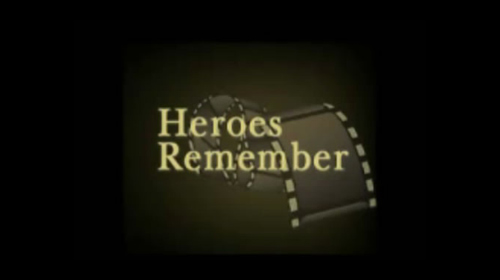Missing rations
First World War Audio Archive
Missing rations
Transcript
Horse and carriage.
with. Some of them were those who were dealing with our rations. Some of them were cooks, some of them were orderly room people. I don’t know how many hands they went through. But if we had received the rations which the government provided for us, we’d have never had any complaints about being short of food. But we were always short of food. We were hungry all the time. And that’s no darn lie. In the morning for breakfast we got one little piece of bacon and there would be one slice of bread dipped in the bacon grease, and coffee. At dinner time we got... if we were lucky we might get hot dinner even up the line (inaudible) rations which was pretty good. That and hard tack, maybe a slice of bread. And in the evening for supper, we had supper at 5 o’clock, our supper would consist of one slice of bread, a piece of cheese, and some marmalade. You’d get that at 5 o’clock and then after dark you went out to work til 2 o’clock in the morning. And by that time, your belly was touching your back bone. And I never knew until the war was overTwo soldiers posing for a photograph.
that stuff was being sold. And we run across the same thing in the transport section where we were going short of food. And we had two cooks. So the boys were getting pretty, getting pretty damn well fed up on it, you know. We knew that the rations were coming in. So they asked me to go to Gilbert and tell him, and I went and told him. “Well,” he said, “Willy, the rations aren’t coming up.” And I said, “They are coming up, and I know they're coming up because we're bringing them up. We’re bringing apples, we’re bringing raisins, we’re bringing all kinds of things that we never see again. What about that?” “Well, I don’t know.” “Well, I’ll see.” Well it went on another couple of days, and the boys come to me again and they said, "You’d better see Gilbert again. Tell him that if he don’t get these two cooks out of here we’re going to kill ‘em. That’s it, beat the hell out of them anyhow." So I went and I told him. I said, “This is getting too serious, Mr. Gilbert.” “Well,” he said, “how would it be if I gave you my cook.” I said, “Your cook?” “Yes.” He had a cook for himself, mind you, a little fellow by the name of Dickson, I think it was, from Kamsack. He gave him to us for our cook. And after that, we got pie every second day, we got all we could eat, well cooked, and if we had to make a night trip, where weSoldier standing "at ease" in front of a building.
wouldn’t get back until after midnight or so, there would be lunch left on the table for us. That was clear proof that those rations were provided. I figured, and I still always will consider the men who sold the rations were far more our enemy than the German soldier across that were doing his little bit as he was told to do. That’s about the lowest of the low trick that could be done to us. Robbing the fighting men of their food.Description
Mr. Gleason describes the fact rations intended for the soldiers were sometimes sold, resulting in unnecessary hunger among the troops. He complains to his officer, resulting in a unexpectedly positive outcome.
Patrick William Gleason
Patrick William Gleason was born in North Dakota, USA, on October 31, 1897. His family moved to Yorkton, Saskatchewan in 1907. Mr. Gleason was a student in Yorkton prior to his enlistment in the 196th Regiment. He was accepted for duty on May 10, 1916, at Brandon, Manitoba, and arrived in France in early 1917 in preparation for the Battle of Vimy Ridge. Mr. Gleason was wounded in the thigh by machine gun fire at Vimy on April 12, 1917. After returning to active duty in France, he spent the remainder of the war hauling munitions to the front lines, and survived a shell explosion and two gas attacks at Amiens. Mr. Gleason was discharged, rank of private, on June 10, 1919. After the war, he farmed for a few years, then taught at several country schools until 1930 when economic and agricultural conditions left the school board with too little money to pay a teacher’s salary. Mr. Gleason then returned to farming in the Yorkton area, and was also employed as postmaster in his hometown of Tonkin from 1950 until he retired in 1973. He was instrumental in organizing sports activities in his community, as well as a Credit Union of which he was secretary treasurer for a number of years. During the 1940s and 1950s, he was also secretary treasurer of the local school board, president of the Saskatchewan Trustees Association, and president of the Saskatchewan Liberal Party. Mr. Gleason married Marion Cecilia Robinson in 1925 and had eight children. He died of cancer on June 21, 1978, and is buried in Yorkton.
Meta Data
- Medium:
- Video
- Owner:
- Veterans Affairs Canada
- Duration:
- 3:43
- Person Interviewed:
- Patrick William Gleason
- War, Conflict or Mission:
- First World War
- Location/Theatre:
- Europe
- Branch:
- Army
- Units/Ship:
- 196th Saskatchewan Regiment
- Rank:
- Private
- Occupation:
- Infantryman
Attestation
Related Videos
- Date modified:



